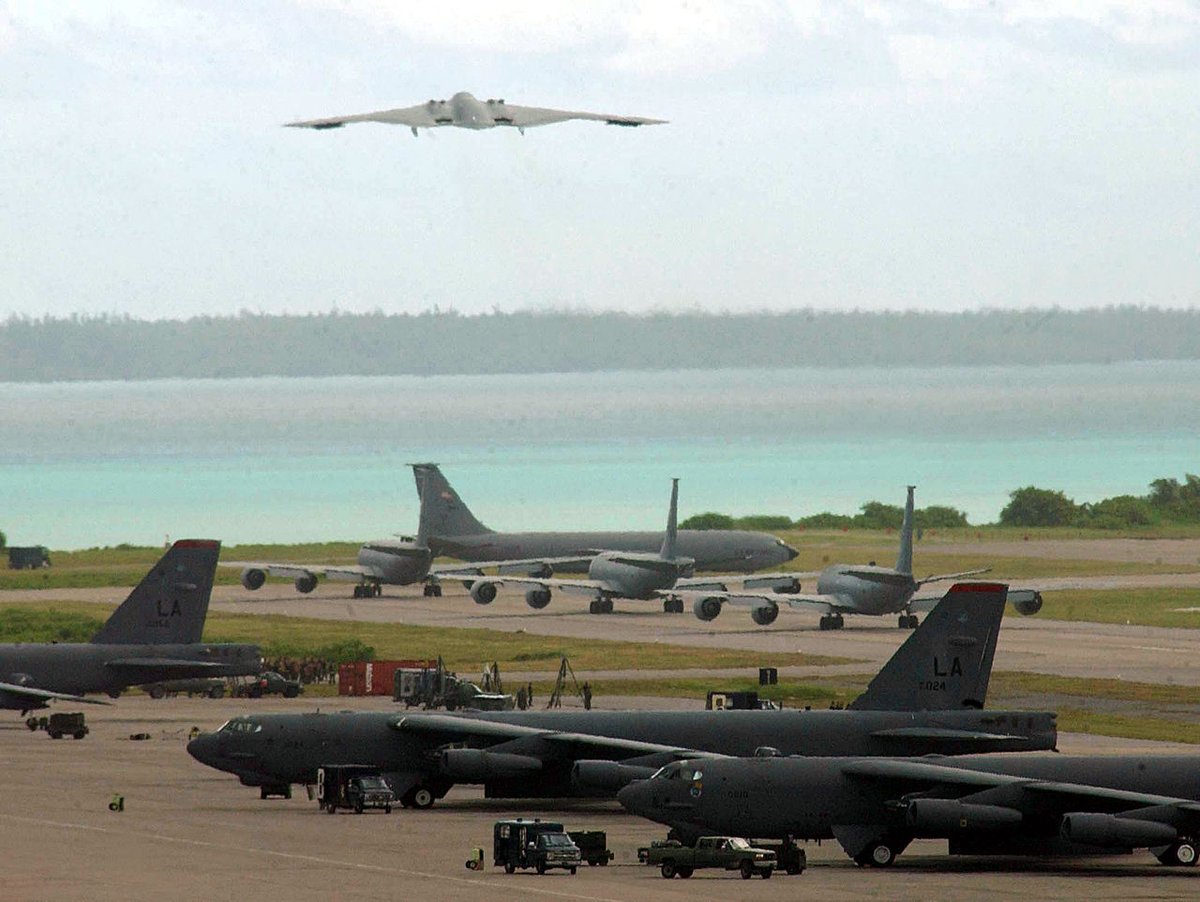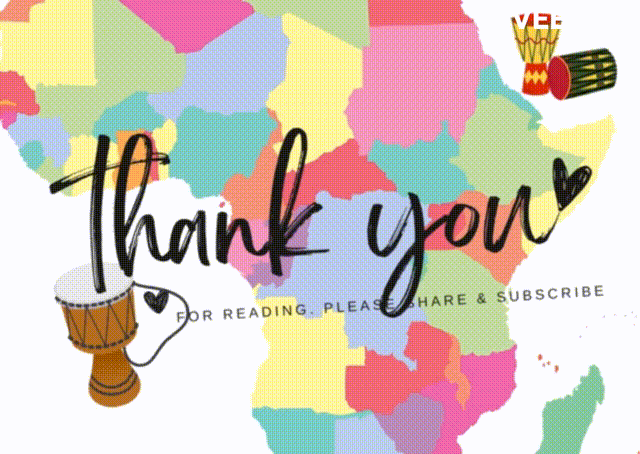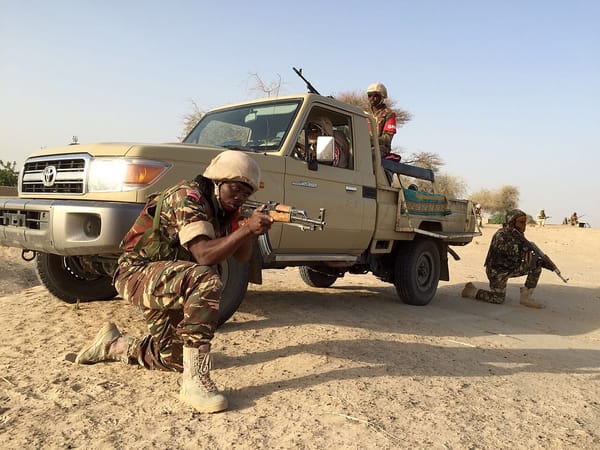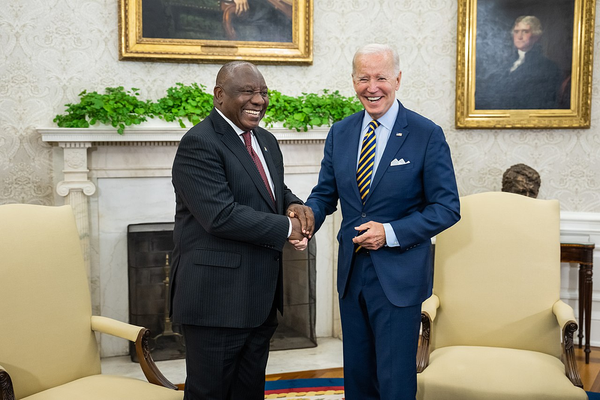News From Around The Motherland.
In this week's post, we look at the news about The U.K. ceding sovereignty of the Chagos Islands to Mauritius. The ongoing war in Sudan. The voter apathy and opposition repression in Tunisia. And the anti-illegal mining protest in Ghana.

Hi there! Here are the top African news making headlines from week 39 of the year 2024
- The U.K. Ceedes Sovereignty Of The Chagos Island To Mauritius.
- Civilians Flee El Fasher As The RSF Begins Push To Take The City.
- The International Criminal Court Issues Arrest Warrants For 6 Men Tied To Libyan Militia Responsible For Multiple Killings.
- Tunisian Presidential Elections Proceeds Amid Voter Apathy And Opposition Repression.
- Thousands Of Demonstrators Protest Illegal Mining In Accra.
- African Migrants Caught In The Ongoing War In Lebanon Get A Life-line.
HEADLINE NEWS
Mauritius.
The U.K. Ceedes Sovereignty Of The Chagos Island To Mauritius.

The UK has agreed to transfer sovereignty of the Chagos Islands to Mauritius in a landmark deal, ensuring the continued operation of the US military base on Diego Garcia (which was forceable depopulated in the 1970s to make way for a U.S. military base) for the next 99 years. This agreement, announced on Thursday, allows Chagossians, displaced for five decades, the right to return to the archipelago, except for Diego Garcia. British Foreign Minister David Lammy highlighted the importance of securing the military base while strengthening ties with Mauritius and preventing illegal migration through the Indian Ocean.
While the agreement marks a significant resolution to a long-standing territorial dispute, some Chagossians expressed frustration over their exclusion from the negotiations. Chagossian Voices, a UK-based community group, criticized the UK for not consulting them about the handover, demanding inclusion in future discussions about their homeland. The deal also includes financial support for Mauritius and cooperation on environmental protection, maritime security, and countering human trafficking. US President Joe Biden hailed the agreement as a testament to diplomacy and partnership.
Sudan.
Civilians Flee El Fasher As The RSF Begins Push To Take The City.

The city of El Fasher in Sudan is rapidly emptying as civilians flee from the escalating conflict between the Sudanese Armed Forces (SAF) and the Rapid Support Forces (RSF). As RSF paramilitaries close in, residents like Aisha, the wife of an SAF soldier, are forced to leave due to relentless shelling and dwindling supplies. Aisha's escape through the last available route was dangerous, with multiple attempts thwarted by nearby explosions. Aid workers estimate that hundreds of thousands have fled westward toward Tawila, navigating through difficult checkpoints manned by armed men demanding bribes, making the journey both dangerous and expensive.
The RSF's offensive on El Fasher, which began in late September, is part of a broader campaign to control Darfur’s major population centres. The humanitarian crisis in Sudan has reached catastrophic levels, with millions displaced and famine affecting parts of Darfur. The roads out of El Fasher are rife with bandits and militias aligned with the RSF, who commit gross human rights abuses against civilians. Those who manage to escape face a bleak future, with scarce food and medical aid in rebel-controlled areas. As the situation worsens, fears grow that an RSF takeover could lead to widespread atrocities, particularly against ethnic groups tied to SAF-aligned movements.
Rwanda.
Rwanda To Begin Vaccination Trial For The Marburg Virus.

Rwandan health authorities have launched a vaccine study to combat the ongoing Marburg hemorrhagic fever outbreak, which has killed 12 people. Rwanda received 700 doses of a trial vaccine from the U.S.-based Sabin Vaccine Institute and will prioritize health workers, emergency responders, and individuals who have come into contact with confirmed cases. With no authorized vaccine or treatment for Marburg, the virus remains highly dangerous, with a fatality rate of up to 88% in severe cases. Like Ebola, it is believed to originate in fruit bats and spreads through contact with the bodily fluids of infected individuals.
Rwanda declared the outbreak on September 27, and there are currently 46 confirmed cases, with 29 patients in isolation. The virus has primarily affected health workers in six of the country's 30 districts, some bordering Congo, Burundi, Uganda, and Tanzania. To contain the spread, the government has implemented strict measures, including restrictions on physical contact, suspending school and hospital visits, and limiting the size of funerals for Marburg victims. The U.S. Embassy in Kigali has advised its staff to work remotely due to the outbreak.
Libya.
The International Criminal Court Issues Arrest Warrants For 6 Men Tied To Libyan Militia Responsible For Multiple Killings.

The International Criminal Court (ICC) unsealed arrest warrants on Friday for six men allegedly linked to a notorious Libyan militia responsible for multiple killings and other atrocities in the western town of Tarhunah, where mass graves were uncovered in 2020. The ICC’s investigation, led by Prosecutor Karim Khan, has gathered evidence suggesting that Tarhunah residents were subjected to war crimes, including murder, torture, sexual violence, and other abuses. The warrants target three senior members of the Al Kaniyat militia and three Libyan security officials connected to the crimes.
Libya has been in turmoil since the 2011 NATO-backed uprising that ousted dictator Moammar Gadhafi, with rival factions controlling the east and west of the country. The mass graves in Tarhunah were discovered after the militia withdrew following the collapse of military commander Khalifa Hifter’s campaign to seize control of Tripoli. While the ICC lacks a police force to enforce arrests, it is working with Libyan authorities and international partners to bring the suspects to justice. The court opened its investigation in Libya in 2011 at the request of the U.N. Security Council.
Congo.
Authorities Lunch Investigations Into Two Deady Maritime Accidents In Congo.

Congolese authorities have launched investigations into two recent deadly maritime accidents, including the capsizing of an overcrowded boat on Lake Kivu that killed at least 78 people on Thursday. The ship, carrying 278 passengers, capsized near the port of Kituku in eastern Congo. The provisional death toll is expected to rise as many people remain unaccounted for. The Justice Ministry announced that the investigations aim to determine the causes of the accidents and hold those responsible accountable. Overcrowding and lack of safety measures, such as life jackets, have been cited as key factors in the tragedy, which occurred amidst a strong storm.
This accident is the latest in a series of maritime disasters in Congo, where overcrowding on vessels and inadequate enforcement of safety regulations are common. Witnesses shared footage of the boat sinking rapidly, and many families gathered at the port to express their frustration with authorities, accusing them of negligence. The region has seen increased reliance on water transport due to fighting between armed forces and M23 rebels, which has made road travel between Goma and Minova unsafe. Some survivors and families of the victims, including Bienfait Sematumba, who lost four family members, blamed the ongoing conflict for the tragedy.
Nigeria.
Over 100 Presumed Dead As Boat Capsizes In Northern Nigeria.

More than 100 people, mostly women and children, are missing after an overloaded boat capsized in northwestern Nigeria while returning from an Islamic festival. The boat, with a capacity of 100 passengers, was carrying around 300 people when it overturned on the Niger River in Niger state's Mokwa district. So far, 11 bodies have been recovered, and at least 150 people have been rescued, according to emergency services. The search effort is being assisted by local divers and volunteers, but many remain unaccounted for.
Boat accidents are common in Nigeria, especially in remote areas where poor roads force residents to rely on river transport. This marks the fourth such tragedy in northern Nigeria involving more than 100 passengers since mid-2023. Overloading and poorly maintained boats, often the result of regulatory failures, are frequently blamed for these disasters. Authorities confirmed that the boat exceeded its capacity, leading to its sinking.
Tunisia.
Tunisian Presidential Elections Proceeds Amid Voter Apathy And Opposition Repression.

Tunisians headed to the polls for the presidential election, which analysts predict President Kais Saied is poised to win. With most of his rivals either imprisoned or disqualified, Saied faces accusations of stifling political competition. Only two other candidates were approved by the electoral commission to challenge him, leading to voter apathy among many Tunisians. However, some still viewed voting as a civic duty, seeing it as a way to set an example for future generations.
Despite the opposition's call to boycott the election in protest of what they see as an unfair race, some Tunisians expressed hope that voting could bring about positive change. They argue that participating in the election is a way to demonstrate public engagement and commitment to a better future for the country. Nearly 10 million Tunisians were eligible to vote, but the boycott's impact on turnout remains uncertain.
Ghana.
Thousands Of Demonstrators Protest Illegal Mining In Accra.

Thousands of demonstrators took to the streets of Accra, Ghana’s capital, demanding an end to illegal mining, locally known as "Galamsey." Protesters voiced concerns about the environmental devastation caused by the unregulated practice and expressed frustration over the government's inaction. Many attendees emphasized their determination to keep pressuring authorities until tangible measures are taken to address the issue.
The protest, which spanned from Thursday to Saturday, remained peaceful and went unhindered by police, unlike a previous demonstration in September. Meanwhile, the Catholic Church is preparing for its protest against Galamsey on Friday, and labour unions plan to hold a nationwide strike the day before. Protesters also called for the release of individuals arrested during an earlier anti-mining demonstration, signalling a growing movement against the illicit industry.
WORLD HEADLINES.
African Migrants Caught In The Ongoing War In Lebanon Get A Life-line.

A group of Lebanese activists has stepped up to support African migrants affected by the ongoing conflict in Lebanon, especially those trapped in the Kafala labour system, which allows employers to withhold workers' passports, preventing them from leaving the country. As the violence escalates and other countries evacuate their citizens, African migrants have been left homeless, desperate for food and shelter, with little assistance from the Lebanese government, which is struggling to manage the displacement of over 1.2 million citizens. Among the vulnerable are 80 women from Sierra Leone, who have sought refuge in a shelter after fleeing bombed areas. Many of these women, like Mary Koroma, had come to Lebanon to support their families but lost their jobs as the conflict worsened.
Activists, led by Dia Haj Shahin, are working to retrieve confiscated passports and start the repatriation process for these migrants, but the situation remains dire. Hassanatu Conteh, a migrant worker injured in a car accident, now faces both physical challenges and fear for her future as the war rages on. Reports of house workers being abandoned by employers fleeing the conflict have also surfaced, highlighting the deepening crisis for migrant workers in Lebanon. The International Organization for Migration estimates that approximately 170,000 migrant workers remain in the country, many of whom are still stranded and without resources in this growing humanitarian crisis.
Israel/Hamas Conflict Clocks 1 Year.

The conflict between Israel and Hamas in Gaza has reached its one-year mark, following the surprise attack launched by Hamas on October 7 last year. During a major Jewish holiday, Hamas fired thousands of rockets and sent fighters into Israeli towns near the Gaza Strip, resulting in over 1,250 Israeli and foreign deaths. Over 250 people were abducted and taken to Gaza, and many remain in captivity. In the days leading up to the anniversary, Israel intensified airstrikes on Gaza and Lebanon, with explosions lighting up Beirut's skyline.
UN Secretary-General António Guterres marked the anniversary with a video statement, calling for the release of hostages and urging peace and a halt to the violence. His statement comes amid growing tension between Israel and the UN, as Israeli Foreign Minister Israel Katz accused Guterres of bias, claiming he has not condemned Hamas's attacks. Currently, nearly 100 Israeli hostages remain in Gaza, and the Israeli military reports that 726 soldiers have died in the conflict over the past year. On the Palestinian side, the Gaza Health Ministry states that over 41,000 people have died, though it does not differentiate between fighters and civilians, as Hamas is known for using civilians as human shields.
Congolese President Boycotts French Summit.

A walkout by Congolese President Felix Tshisekedi nearly overshadowed the summit of French-speaking nations in Paris over the weekend. Tshisekedi staged the protest in response to French President Emmanuel Macron's opening speech, which notably did not mention the ongoing conflict in eastern Congo. His absence from the summit's heads of state retreat created an awkward moment for French diplomacy. Tshisekedi also boycotted a luncheon organized by Louise Mushikiwabo, the head of the Organisation of Francophone Countries and former Rwandan foreign minister, further deepening tensions.
Kinshasa interpreted Macron’s omission as an effort to appease Rwanda, whom Congo accuses of supporting M23 rebels fighting alongside Rwandan troops in eastern DRC. At a press conference, Macron denied favouring any side, stating that he encouraged Rwanda and Congo to pursue peace talks mediated by Angola. Before the summit, Macron held separate meetings with Tshisekedi and Rwandan President Paul Kagame to address the ongoing crisis.
Former Senegalese President Macky Sall Steps Down From Special Envoy Role.

Former Senegalese president Macky Sall has stepped down from his role as Special Envoy for the Paris Pact for People and the Planet (4P), a position he was appointed to by French President Emmanuel Macron in 2023. Sall's resignation comes as he prepares to lead the opposition coalition, Takku Wallou, in Senegal’s upcoming legislative elections on November 17. In his resignation letter, he cited the need to "avoid any risk of incompatibility and conflict of interest" due to his candidacy. Macron had offered him the 4P role after Sall chose not to seek a third presidential term.
Sall’s return to the political scene, after backing Bassirou Diomaye Faye in the presidential race, signals a critical moment in Senegalese politics. His coalition aims to regain momentum and unite the opposition as they challenge the ruling Pastef party’s dominance in parliament. This development marks a significant shift in the legislative campaign, with Sall’s leadership likely to influence the opposition's strategy moving forward.
African Personality Of The Week
Vusi Thembekwayo

Vusi Thembekwayo, born in March 1985 in Benoni, South Africa, is a prominent entrepreneur, author, and businessman, known for founding and serving as the CEO of MyGrowthFund Venture Partners. He pursued higher education at the University of Witwatersrand, where he studied Management Advanced Programme and commerce, followed by a postgraduate diploma in Business Administration from the Gordon Institute of Business Science (GIBS) and an executive MBA in Business and Economics from Ashridge Executive Education and Hult International Business School. In addition to his entrepreneurial ventures, Thembekwayo gained fame as one of the investors, or "dragons," on the South African version of Dragons' Den, showcasing his expertise alongside other notable investors. He is also the author of two books.
We invite you to explore sponsorship opportunities or get in touch with us. Reaching out to admin@prominentgreen.com.
Your engagement is highly valued, and we look forward to hearing from you with enthusiasm!

Thank you for reading.
Unlock a world of knowledge and stay ahead of the curve by subscribing to our engaging weekly newsletter.
If this was forwarded to you, don't miss out on the latest and most important headlines in Africa. Subscribe now, share your thoughts in the comments, and spread the knowledge





